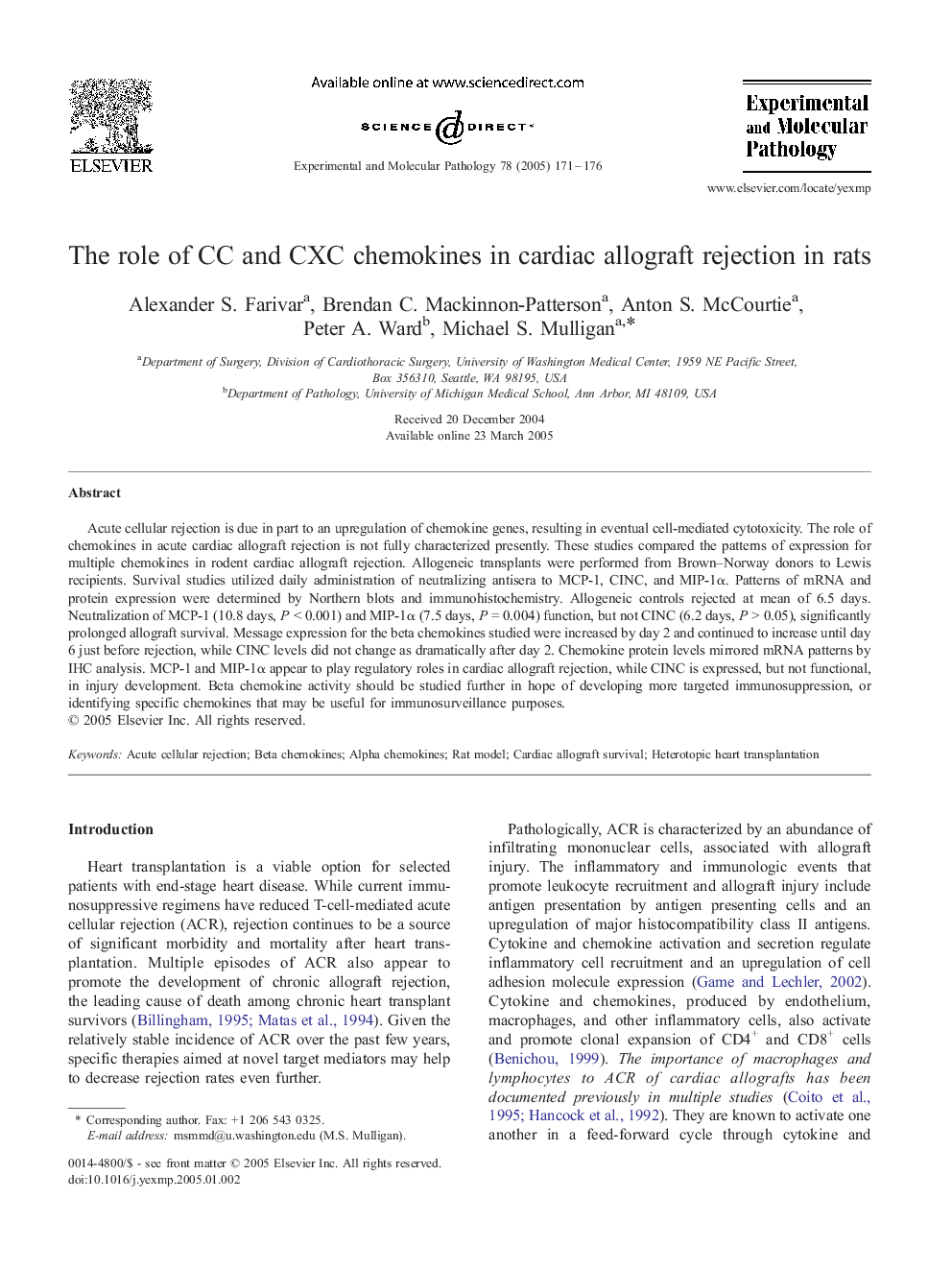| Article ID | Journal | Published Year | Pages | File Type |
|---|---|---|---|---|
| 9102897 | Experimental and Molecular Pathology | 2005 | 6 Pages |
Abstract
Acute cellular rejection is due in part to an upregulation of chemokine genes, resulting in eventual cell-mediated cytotoxicity. The role of chemokines in acute cardiac allograft rejection is not fully characterized presently. These studies compared the patterns of expression for multiple chemokines in rodent cardiac allograft rejection. Allogeneic transplants were performed from Brown-Norway donors to Lewis recipients. Survival studies utilized daily administration of neutralizing antisera to MCP-1, CINC, and MIP-1α. Patterns of mRNA and protein expression were determined by Northern blots and immunohistochemistry. Allogeneic controls rejected at mean of 6.5 days. Neutralization of MCP-1 (10.8 days, P < 0.001) and MIP-1α (7.5 days, P = 0.004) function, but not CINC (6.2 days, P > 0.05), significantly prolonged allograft survival. Message expression for the beta chemokines studied were increased by day 2 and continued to increase until day 6 just before rejection, while CINC levels did not change as dramatically after day 2. Chemokine protein levels mirrored mRNA patterns by IHC analysis. MCP-1 and MIP-1α appear to play regulatory roles in cardiac allograft rejection, while CINC is expressed, but not functional, in injury development. Beta chemokine activity should be studied further in hope of developing more targeted immunosuppression, or identifying specific chemokines that may be useful for immunosurveillance purposes.
Related Topics
Life Sciences
Biochemistry, Genetics and Molecular Biology
Clinical Biochemistry
Authors
Alexander S. Farivar, Brendan C. Mackinnon-Patterson, Anton S. McCourtie, Peter A. Ward, Michael S. Mulligan,
